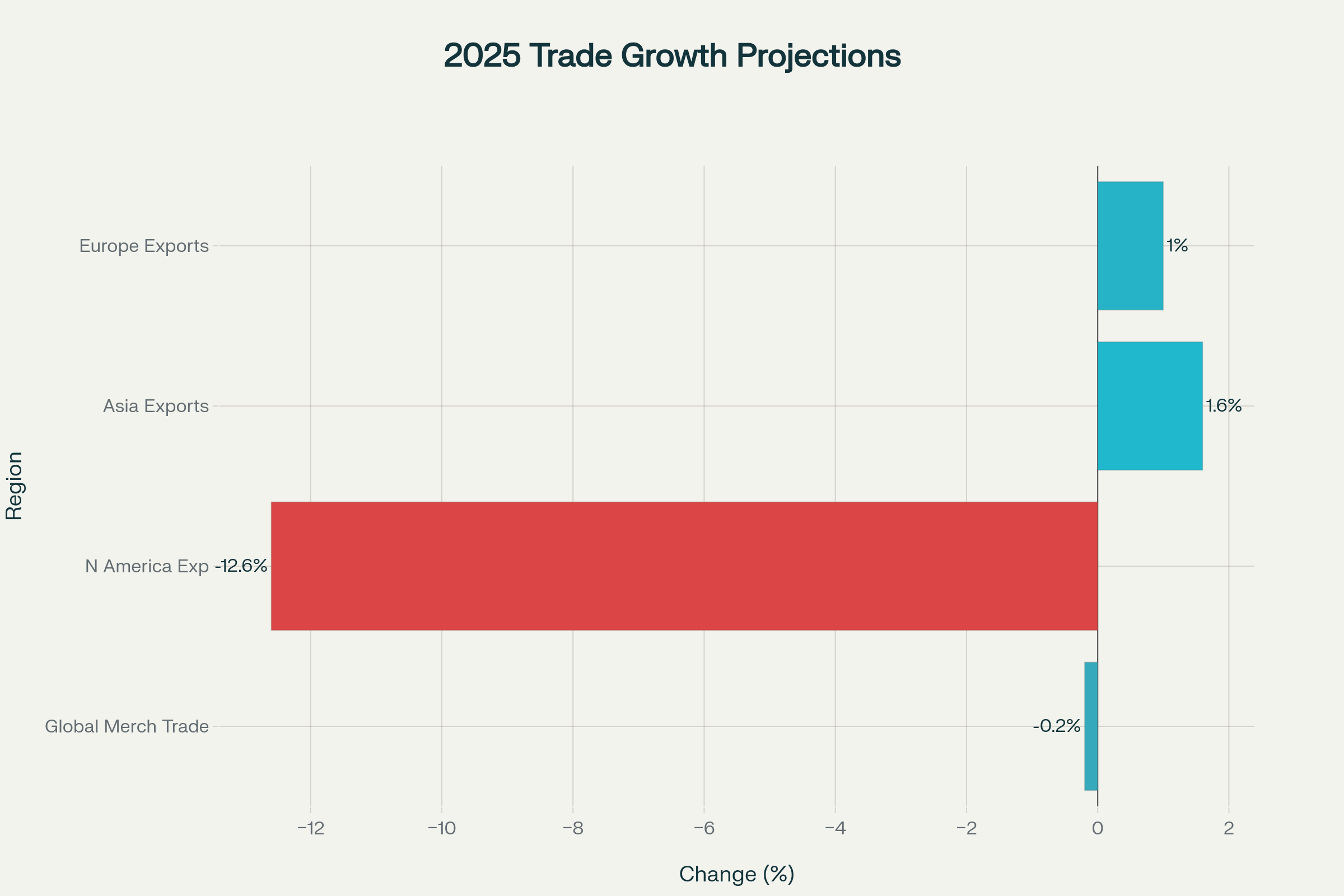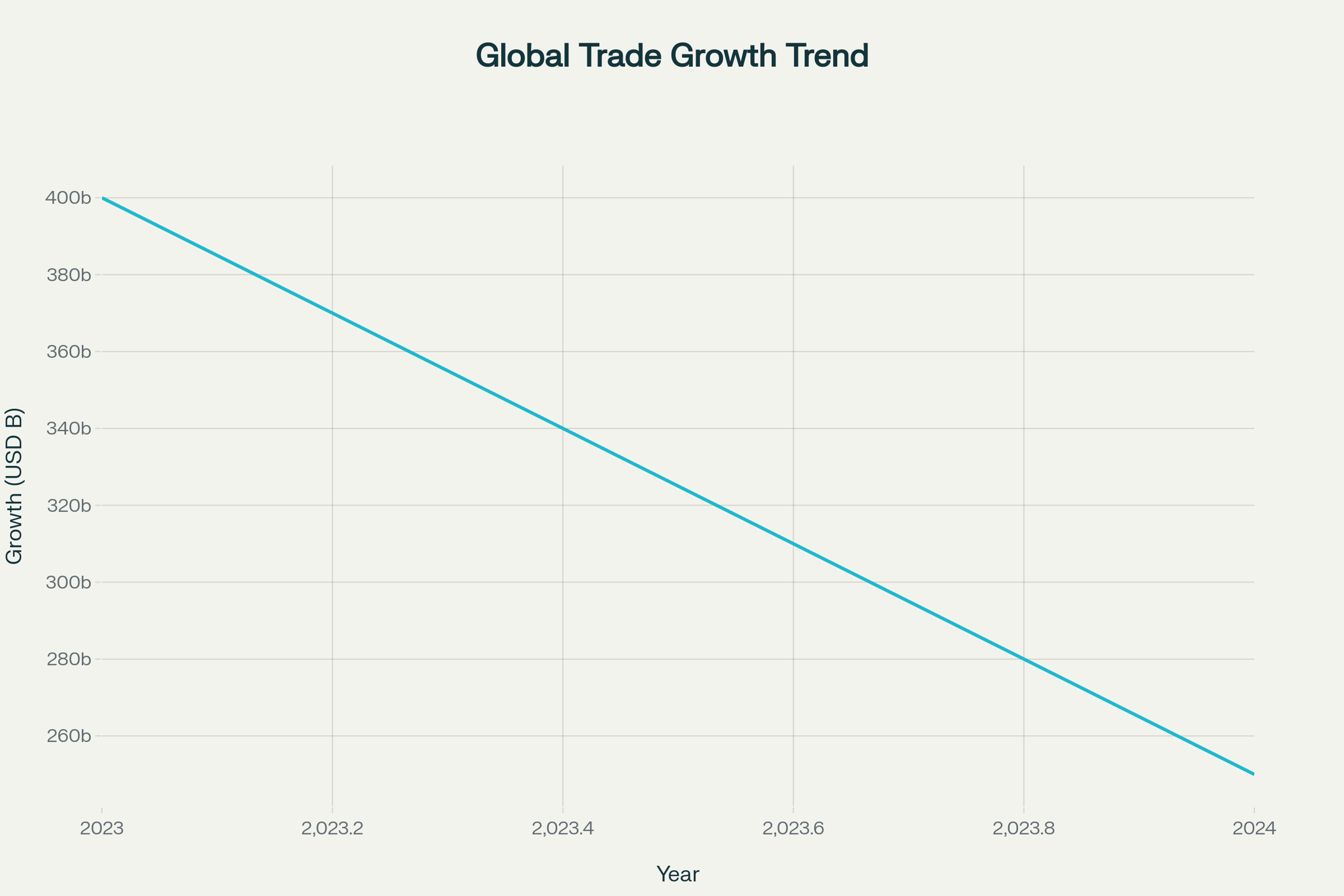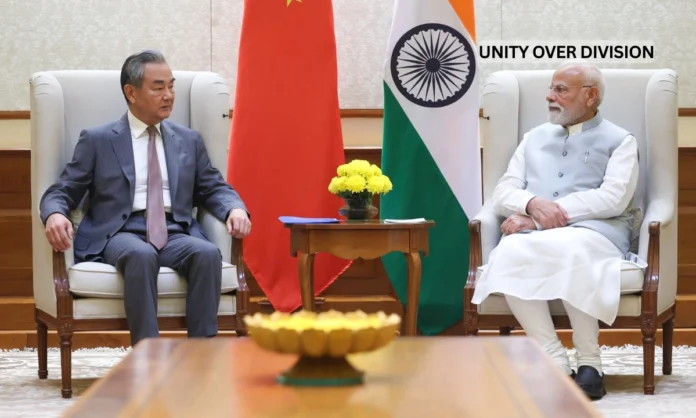Key Highlights:
- China hosts the largest-ever SCO Summit in Tianjin with over 20 world leaders attending from August 31 to September 1, 2025
- The summit addresses mounting global trade uncertainties with projected 0.2% decline in global merchandise trade and China’s call for regional unity frameworks
- Xi Jinping emphasizes abandoning “cold war mentality” as Beijing positions SCO as alternative to Western-led multilateral institutions
China’s preparation to host the Shanghai Cooperation Organisation (SCO) Summit in Tianjin comes at a critical juncture when global trade faces unprecedented uncertainties. Chinese President Xi Jinping will chair the largest gathering in SCO’s 24-year history, bringing together more than 20 world leaders including Prime Minister Narendra Modi, Russian President Vladimir Putin, and UN Secretary-General Antonio Guterres. The summit’s emphasis on China’s call for regional unity directly responds to what Chinese Assistant Foreign Minister Liu Bin describes as the need to overcome “cultural wars and cold war mentality”. Against this backdrop of trade volatility and geopolitical tensions, the SCO emerges as Beijing’s strategic answer to fostering multilateral engagement beyond traditional Western-dominated frameworks through China’s call for regional unity.
Global Trade Crisis Intensifies China’s Call for Regional Unity
China’s call for regional unity gains critical importance as global trade confronts severe headwinds throughout 2025. The World Trade Organization projects a 0.2% decline in global merchandise trade for 2025, with potential deterioration to 1.5% if trade tensions escalate further. North America faces particularly severe challenges with projected export declines of 12.6%, while Asia maintains modest growth at 1.6%. Despite overall global expansion of $300 billion in the first half of 2025, persistent policy uncertainty and geopolitical tensions threaten sustained recovery.
Glad to meet Foreign Minister Wang Yi. Since my meeting with President Xi in Kazan last year, India-China relations have made steady progress guided by respect for each other's interests and sensitivities. I look forward to our next meeting in Tianjin on the sidelines of the SCO… pic.twitter.com/FyQI6GqYKC
— Narendra Modi (@narendramodi) August 19, 2025
The United States’ implementation of new tariffs, including a 10% baseline rate and additional duties on steel and aluminum, has intensified China’s call for regional unity among developing nations. These measures risk disrupting deeply integrated production networks, with uncertainty spillovers affecting global supply chains. In response, developing countries experienced a 2% drop in imports during the first quarter of 2025, highlighting the uneven impact of trade policy shifts.
Regional trade blocs demonstrate increasing importance as traditional multilateral frameworks struggle. The Council on Foreign Relations confirms that “the global trading system as we have known it is dead,” with the WTO effectively ceasing to function as monitor and enforcer of member commitments. Both America’s “America First” trade strategy and China’s “Dual Circulation” strategy reflect clear preferences for power-based systems over rules-based frameworks, further strengthening China’s call for regional unity.

Global trade projections and regional export changes for 2025 according to WTO
SCO’s Strategic Response Reflects China’s Call for Regional Unity
China’s messaging around the SCO Summit directly embodies China’s call for regional unity against what it characterizes as Western hegemonism and cold war mentality. Liu Bin’s emphasis on overcoming “outdated mindsets of hegemonism and power politics” represents Beijing’s broader critique of what it views as unilateral approaches to international relations. The Chinese leadership frames certain countries as attempting to “prioritise their own interests above others, seriously threatening world peace and stability,” making China’s call for regional unity more urgent.
The SCO’s approach emphasizes multilateralism and regional stability as alternatives to confrontational frameworks, directly supporting China’s call for regional unity. Xi Jinping previously warned SCO members about “real threat from Cold War mentality,” calling for adherence to “common, comprehensive, cooperative and sustainable security” principles. This positioning reflects China’s strategic effort to build coalitions outside Western-led institutions while promoting alternative governance models through China’s call for regional unity.
Beijing’s critique extends beyond general diplomatic rhetoric to specific policy challenges. Foreign Ministry spokesman Guo Jiakun recently dismissed US military officials’ remarks about Chinese presence in Latin America as reflecting “entrenched Cold War and confrontational mentality”. These statements demonstrate China’s systematic effort to frame its international engagement as cooperative rather than competitive, contrasting with what it characterizes as American hegemonic practices while reinforcing China’s call for regional unity.chinadaily+1
Economic Integration Strengthens China’s Call for Regional Unity
The 2025 SCO Summit addresses both economic cooperation and security challenges within a comprehensive framework reflecting China’s call for regional unity. Trade among SCO member states has demonstrated remarkable growth, increasing nearly 100-fold in the organization’s first 20 years, with their share of global trade rising from 5.4% in 2001 to 17.5% in 2020. This expansion reflects the bloc’s evolution from primarily security-focused cooperation to comprehensive economic integration, supporting China’s call for regional unity.
Infrastructure development represents a key priority, with the Eurasian Development Bank estimating $245 billion required for upgrading regional SCO transport networks. Major projects under discussion include the Trans-Afghan Railway, requiring approximately $5 billion to connect landlocked Central Asian nations with Indian Ocean ports. These initiatives complement broader connectivity frameworks like the International North-South Transportation Corridor and Middle Corridor developments, demonstrating practical application of China’s call for regional unity.
Security cooperation remains fundamental to SCO operations, particularly through the Regional Anti-Terrorist Structure mechanism. Member states continue collaborative efforts to combat terrorism, separatism, and extremism while strengthening security frameworks and expanding joint exercises into cyberspace. The organization’s security focus addresses ongoing regional challenges, including Afghanistan’s stability and Pakistan’s terrorism concerns, which affect broader regional security dynamics and reinforce China’s call for regional unity.

Global trade growth trend (2023-2025H1) based on UNCTAD data
Multilateral Framework Evolution and China’s Call for Regional Unity
The current global context reveals significant challenges to multilateral cooperation effectiveness, strengthening China’s call for regional unity. The Multilateralism Index 2024 demonstrates clear decline in performance across peace and security, human rights, and climate action domains between 2013 and 2023. While participation in multilateral institutions remains relatively steady, actual performance in addressing global crises has deteriorated significantly, validating China’s call for regional unity.
Trade multilateralism faces particular difficulties, with participation in multilateral trade frameworks remaining stagnant since 2015. The volatility caused by COVID-19 and heightened geopolitical competition complicates assessment of trade cooperation effectiveness. However, inclusivity indicators show improvements, reflecting steady growth in civil society engagement and women’s representation across various multilateral institutions, areas where China’s call for regional unity shows promise.
China’s positioning of the SCO as an alternative multilateral platform responds to these systemic challenges while promoting China’s call for regional unity. The organization’s emphasis on the “Shanghai Spirit” – featuring mutual trust, mutual benefit, equality, consultation, respect for diverse civilizations, and pursuit of common development – offers contrast to what Beijing characterizes as confrontational Western approaches. This framing positions the SCO as representing nearly half the world’s population while promoting inclusive regional governance models through China’s call for regional unity.
Closing Assessment: Redefining Global Cooperation Through China’s Call for Regional Unity
The 2025 SCO Summit in Tianjin represents more than routine diplomatic engagement; it signals China’s strategic effort to reshape global cooperation frameworks amid unprecedented trade uncertainties and geopolitical tensions through China’s call for regional unity. With global merchandise trade facing potential decline and traditional multilateral institutions struggling with performance challenges, regional organizations like the SCO gain prominence as alternative cooperation mechanisms. China’s emphasis on overcoming “cold war mentality” reflects broader competition between cooperative and confrontational approaches to international relations, positioning the summit as a critical moment for defining future multilateral engagement patterns through China’s call for regional unity.


